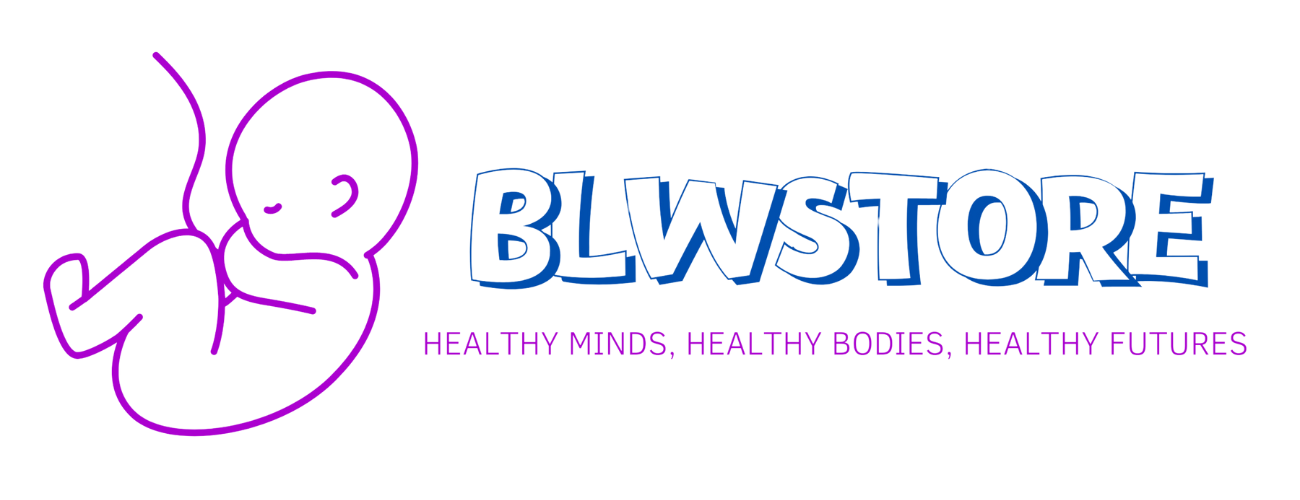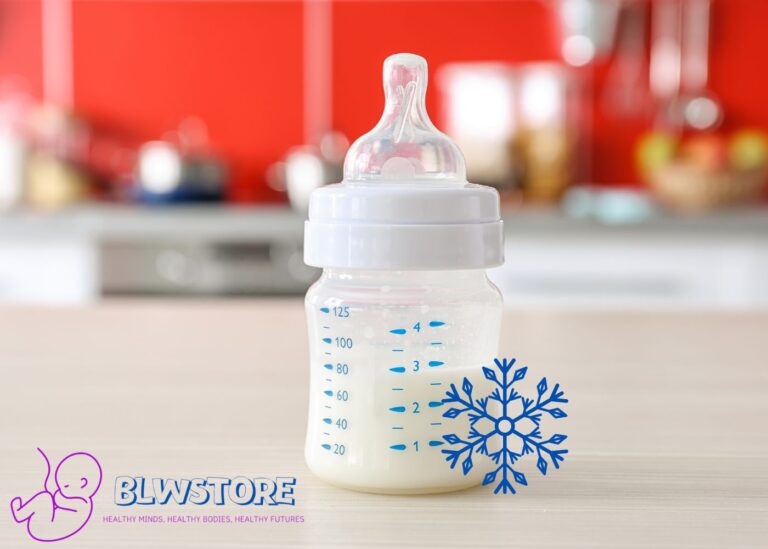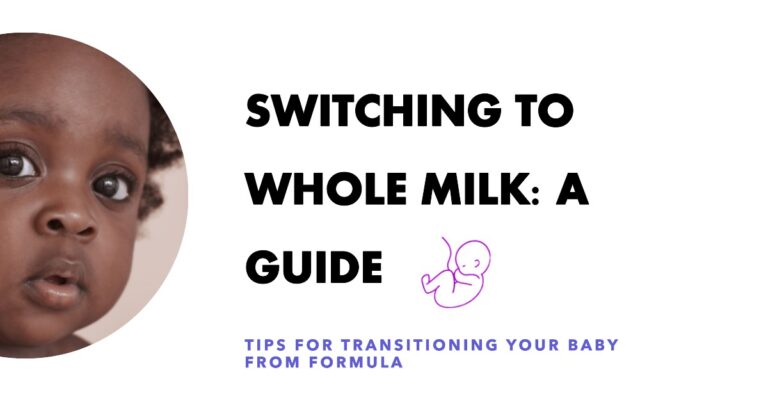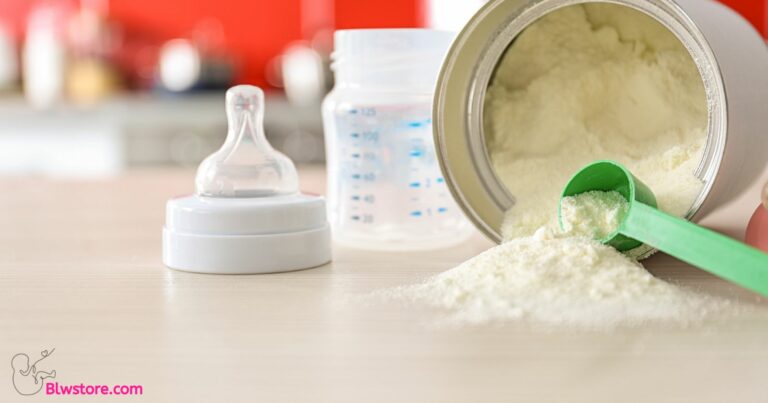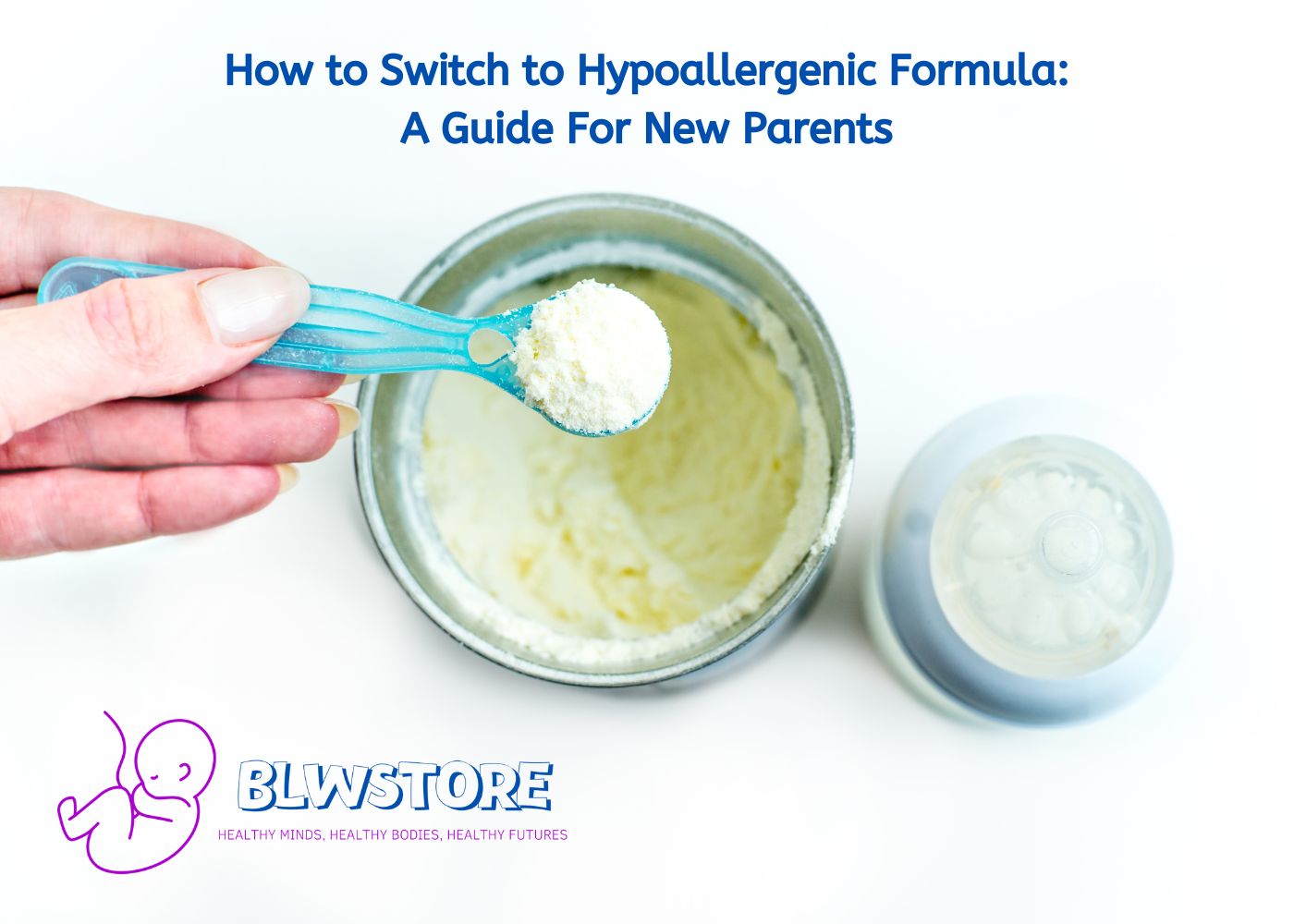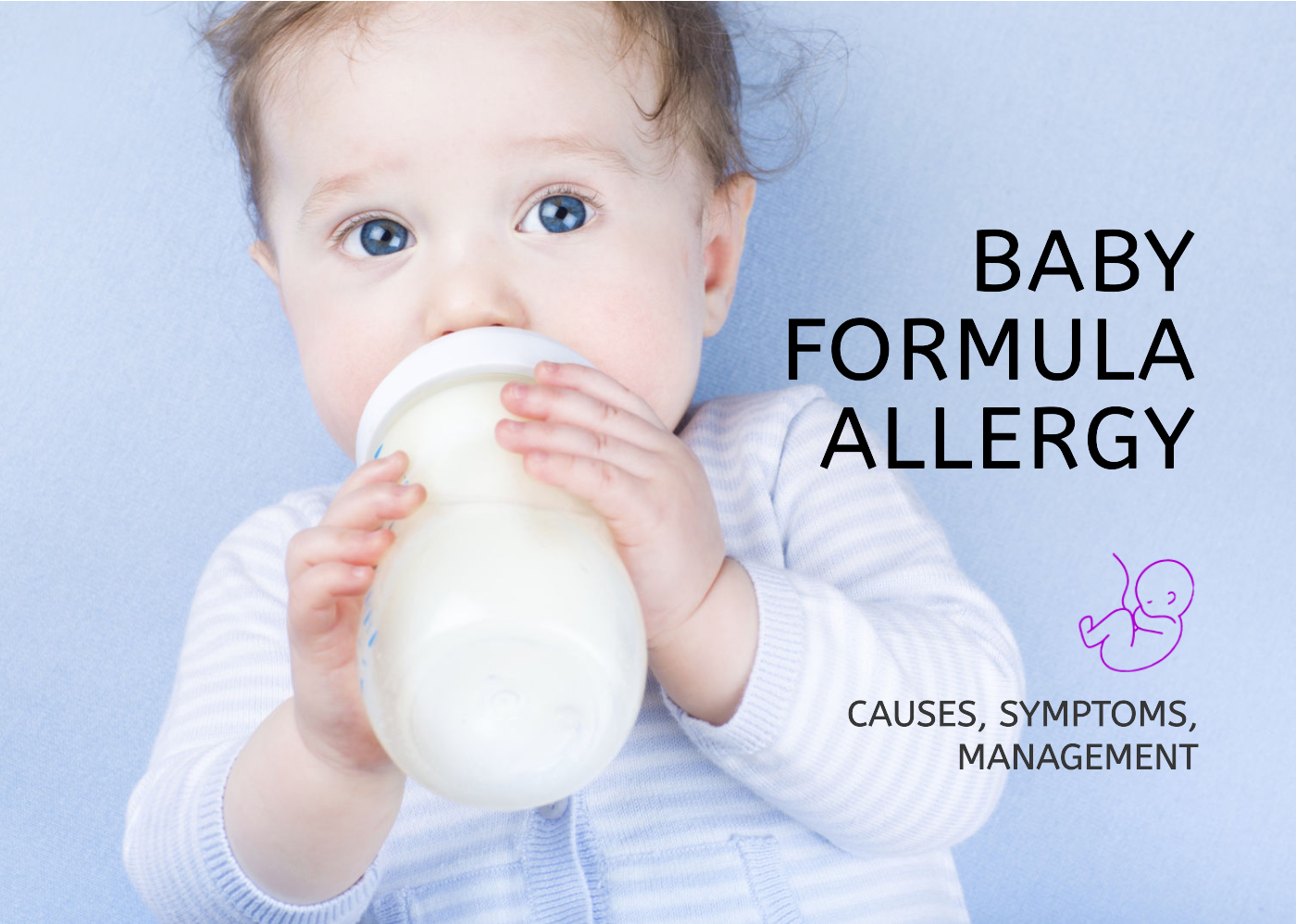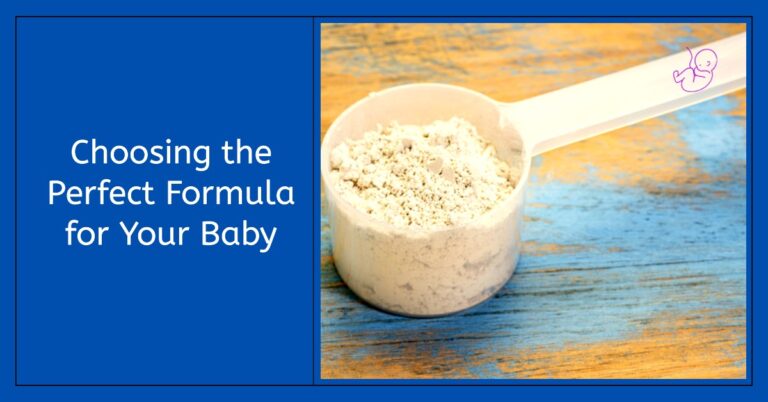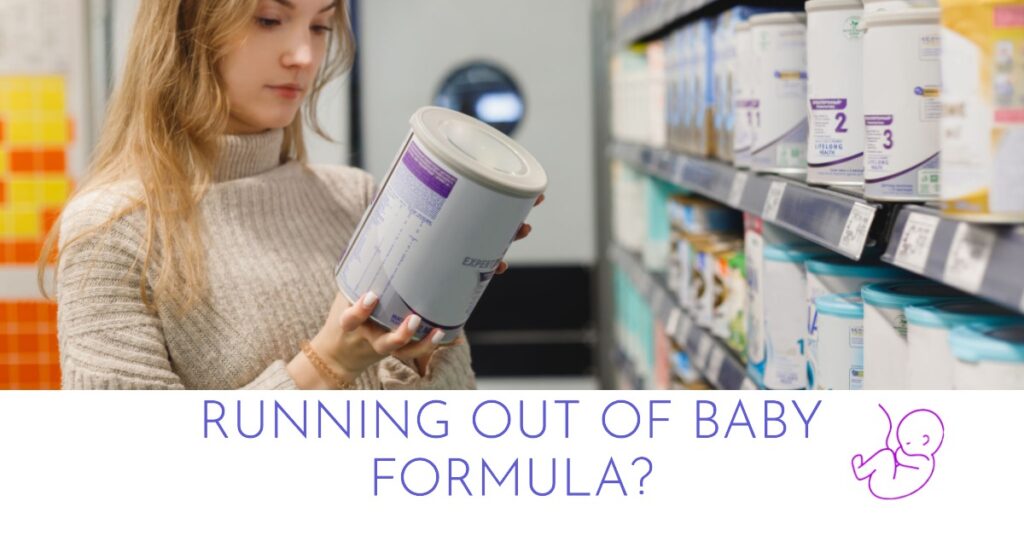
Key Takeaways
A baby formula shortage can be challenging but there are alternatives to consider.
1️⃣ First, try to find a similar formula to the one you’re currently using. If not possible, opt for another formula even if it’s a bit different.
2️⃣ Reach out to nursing mothers who can donate breast milk or consider a breast milk bank.
3️⃣ In extreme cases, making homemade formula could be an option, but only under the supervision of a healthcare professional.
Emergency Alternatives to Baby Formula
1️⃣ Try finding similar brands if your baby’s formula is out of stock.
2️⃣ Making homemade formula should be the absolute last resort, and never without professional guidance. It should be seen as a temporary solution.
What Not to Do When You Run Out of Formula ❌
1️⃣ Never dilute formula with water. It can lead to inadequate nutrition and potential health risks.
2️⃣ Avoid giving animal milk or milk alternatives to babies under 1 year.
3️⃣ Do not make your own formula unless advised by a healthcare professional.
Safe Hydration Options
1️⃣ Oral rehydration solutions like Pedialyte can help keep your baby hydrated.
2️⃣ If possible, consider getting breast milk from milk banks or breastfeeding mothers.
A shortage of baby formula can be stressful for new parents.
Many are left scrambling for alternatives, with recent supply chain disruptions, and product recalls rocking the infant formula market.
This article aims to provide comprehensive guidance on navigating these rough waters without compromising your little one’s nutrition.
Our Short Experience and Opinion
If you’re running out of formula, here’s what we would do:
Look for an alternative formula similar in ingredients to the one we are currently using. (If we couldn’t find one that is similar, look for another alternative even if it is a bit different).
Contact a nursing mother who can donate some breast milk close to our circle.
Contact a breast milk bank.
If nothing has worked, the last resort would be to make homemade formula, always with the help of a health professional. (Fortunately, nowadays it is difficult to go to this extreme).
What are emergency alternatives to baby formula?
During a formula shortage, you can consider a few emergency alternatives if you’ve run out of baby formula, such as similar alternative brands or making homemade formula (only as a last resort).
Find alternative brands
If the formula our baby consumes is unavailable, it is important to look for an alternative as close to your formula as possible.
In our infant formula section, we have dozens of comparisons of different formulas that you can explore until you find one that suits your baby’s needs.
If you’ve read any of our posts, you’ll know that our two favorite formulas on the market today are Kendamil and Bobbie, both of which are currently available.
Making homemade formula (only as a last resort)
Making homemade baby formula should always be a last resort.
The best homemade formula, in our opinion, comes from westonaprice.org.
When making homemade formula at home, keep the following in mind:
Seek professional guidance: Before attempting to make homemade formula, it is crucial to consult with your pediatrician or a healthcare professional. They can provide specific instructions based on your baby’s nutritional needs and any health concerns.
Be cautious with ingredients: Homemade formula recipes often include cow’s milk, coconut milk, or goat’s milk as a base. It is important to note that these kinds of milk should never be used as a sole substitute for breast milk or commercial infant formula in infants under 12 months of age.
Avoid sweeteners: Homemade formulas should not contain added sugars or sweeteners like honey or maple syrup. These can harm infants under one year old and increase the risk of botulism.
Maintain hygiene: When preparing homemade formula, it is essential to follow proper sanitation practices. Ensure all utensils and equipment are thoroughly cleaned and sterilized before use.
Nutritional balance: Homemade formulas may not provide the same balanced nutrition as commercial infant formulas.
Temporary solution: Making homemade formula should only be considered as a temporary solution until you can obtain commercially available infant formula again.
What Not to Do When You Run Out of Formula
Do not dilute formula with water, as it can lead to inadequate nutrition.
Avoid giving animal milk or alternatives to infants under 1 year.
Homemade formula should only be made under professional guidance.
Do not dilute formula with water
Diluting baby formula with water is not a safe alternative if you run out. It’s important to note that babies need the proper balance of nutrients provided by formula, and diluting it can lead to inadequate nutrition and potential health risks.
If you find yourself running low or unable to find formula, it’s best to explore other alternatives such as contacting your pediatrician for guidance or reaching out to local programs like WIC or SNAP for assistance.
Do not give animal milk or milk alternatives to babies under 1 year of age
Giving animal milk or milk alternatives to babies under 1 year is not recommended.
Animal milk, such as cow’s milk, does not provide the necessary nutrients for optimal infant growth and development.
It lacks important vitamins and minerals, like iron and vitamin C, essential for a baby’s health.
Furthermore, introducing animal milk too early can increase the risk of developing allergies or digestive issues.
Baby’s kidneys are also not fully developed at this stage, making it difficult for them to process the high levels of protein found in animal milk.
Do not make your own formula unless advised by a healthcare professional
It is crucial to remember that making your own formula at home should only be done under the guidance and recommendation of a healthcare professional.
While it may seem like an easy solution during a formula shortage, it’s important to recognize the potential risks involved in creating homemade formulas.
Babies have specific nutritional needs that must be met for healthy growth and development, and commercial infant formulas are designed to meet those requirements.
What are safe options for hydrating your baby?
Safe alternatives to formula include oral rehydration solutions like Pedialyte, coconut water (depending on age), and seeking breast milk from milk banks or breastfeeding mothers.
Oral rehydration solutions (such as Pedialyte)
If you find yourself in a situation where you’ve run out of baby formula, there are safe alternatives to ensure your little one stays hydrated.
One option is oral rehydration solutions like Pedialyte or Enfalyte.
These solutions are formulated with the right balance of electrolytes and fluids to help replenish lost nutrients and prevent dehydration in babies.
Coconut water can also be considered depending on your baby’s age, as it contains carbohydrates and electrolytes that aid hydration.
Breast milk (if available)
It’s obvious, but breast milk is the best food for a baby.
If you are looking for alternatives to formula, we assume you cannot produce breast milk.
However, some breast milk banks can supply mothers in need. Maria has donated milk in the past for mothers in need.
There are beautiful people willing and happy to help everywhere, you just have to find them.
Additionally, you can try to find some breastfeeding mothers around you to lend a hand.
FAQs
1. Can I use regular cow’s milk as a substitute for baby formula?
No, it is not recommended to use regular cow’s milk as a substitute for baby formula before your baby turns one year old.
Cow’s milk does not contain all the nutrients that infants need and may be difficult for their immature digestive systems.
2. What other options besides using traditional powdered or liquid baby formulas?
If traditional powdered or liquid baby formulas are not available, ready-to-feed options such as single-serving bottles might still be accessible at nearby convenience stores or pharmacies even when larger containers are sold-out due high-demand situations like natural disasters etc.. *Read: Liquid vs Powder formula
Additionally – online retailers often have a wide variety available, including specialty formulations (e.g., hypoallergenic).
We’re Maria and Alberto, a married couple and educators who are nutrition enthusiasts. Even before we had kids, we were already crazy about nutrition.
We’d read scientific articles, watch videos from nutritionists, and spend hours listening to nutrition podcasts.
Today, we continue doing this, but in a different way, as we’ve learned to sift through the noise and trends. Nutrition, like any other field of knowledge, the more you read and learn, the more you develop a comprehensive understanding of reality, and that’s what has happened to us.
Before having our first child, we focused on learning everything we could about child nutrition, using the same techniques we had already employed, backed by our extensive knowledge in nutrition.
Our mission is to help other parents with their children’s nutrition, to help them become the best versions of themselves.
If we are what we eat and drink, which is absolutely true, let’s do it right!
